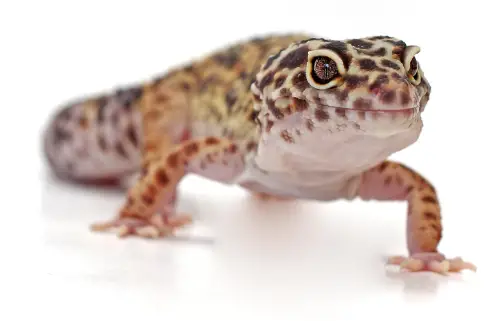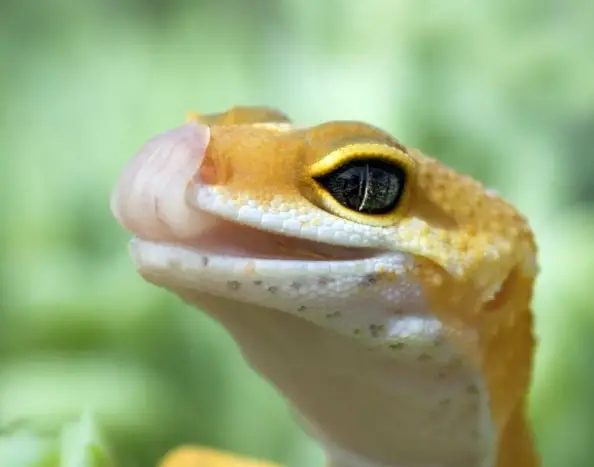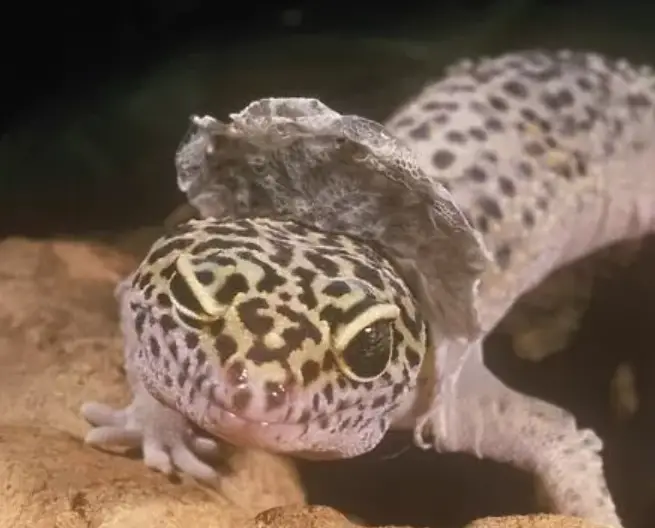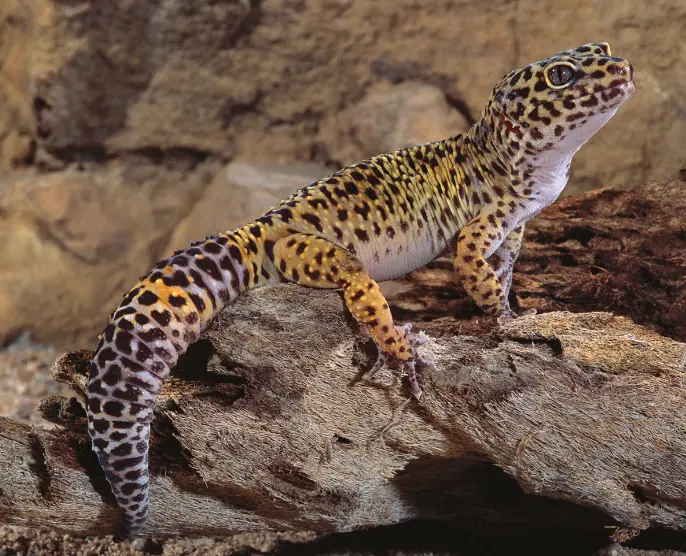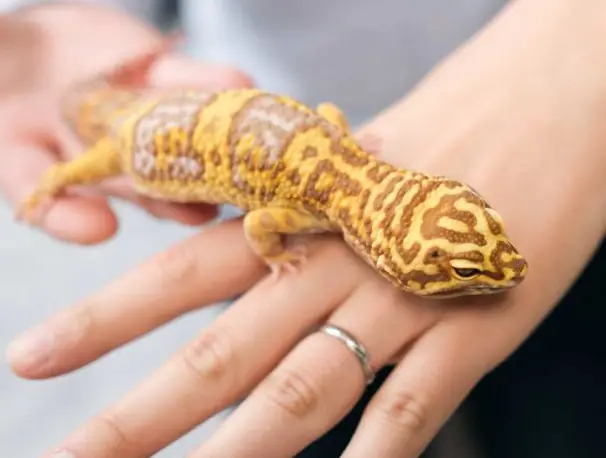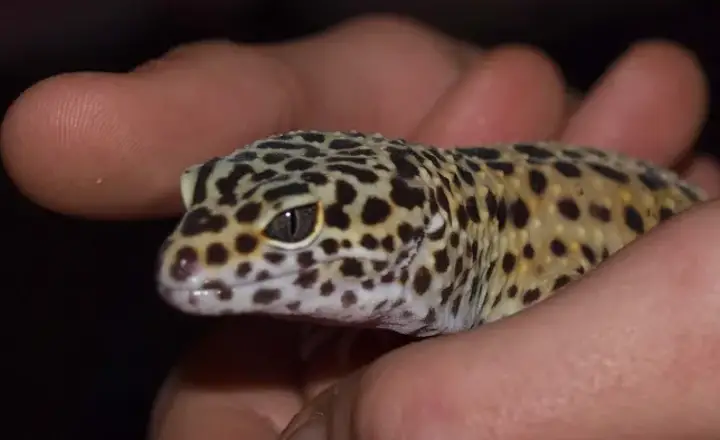Leopard geckos are one of the most popular reptile pets due to their small size and unique personalities. However, some leopard geckos can be picky eaters, refusing to eat certain types of food or ignoring their food altogether. This can be a cause for concern for owners, as a lack of proper nutrition can lead to health problems for their pets. In this article, we will provide a few tips for feeding picky leopard geckos.
What are leopard geckos?
Leopard geckos are small, nocturnal reptiles native to the deserts of Afghanistan, India, and Pakistan. They are named for the distinctive leopard-like spots on their skin, and can range in color from yellow to orange to brown. Leopard geckos typically grow to around 8 to 11 inches in length, with a lifespan of 15 to 20 years.
What do leopard geckos eat?
Leopard geckos are carnivores, meaning they primarily eat other small animals. In captivity, they are typically fed a diet of live insects such as crickets, mealworms, and waxworms. Some owners also supplement their gecko’s diet with pinkie mice or other small rodents. It’s important to note that leopard geckos should not be fed insects caught in the wild, as these insects may have been exposed to pesticides or other chemicals that can harm your pet.
What are the signs that your leopard gecko is a picky eater?
There are several signs that your leopard gecko may be a picky eater. These include:
– Refusing to eat certain types of food
– Ignoring their food altogether
– Only eating one type of food, such as crickets or mealworms, and refusing to try anything else
– Eating very slowly or not at all
If you notice any of these signs in your leopard gecko, it’s important to take action to ensure they are getting the nutrition they need.
How can you encourage a picky leopard gecko to eat?
There are several things you can try to encourage a picky leopard gecko to eat:
– Offer a variety of foods: Try offering different types of insects or other small animals to see if your gecko has a preference. Some geckos may prefer mealworms over crickets, for example.
– Change up the feeding schedule: Some geckos may be more willing to eat at different times of the day or night. Try offering food during different times to see if your gecko is more interested.
– Offer live prey: Leopard geckos are hunters by nature, and may be more interested in live prey than dead insects. Try offering live crickets or mealworms to see if this piques your gecko’s interest.
– Try hand-feeding: Some geckos may be more willing to eat if the food is offered directly to them. Use tongs or your fingers to offer food to your gecko by hand.
– Warm up the food: Leopard geckos are more likely to eat food that is warm, as this mimics the body temperature of live prey. You can warm up insects by placing them in a plastic bag with a warm paper towel for a few minutes before offering them to your gecko.
– Use supplements: If your leopard gecko is consistently refusing to eat, you may need to supplement their diet with vitamin and mineral supplements. Talk to your veterinarian to see what type of supplements are recommended for your gecko.
What types of insects should you feed a picky leopard gecko?
Leopard geckos can be fed a variety of insects, but some may be more appealing to picky eaters. Here are some types of insects you can try feeding to your gecko:
– Crickets: These are a staple food for many leopard geckos. They are high in protein and easy to find at most pet stores.
– Mealworms: These are another common food for leopard geckos. They are high in fat and should be fed in moderation.
– Waxworms: These are a high-fat treat that should only be fed occasionally.
– Dubia roaches: These are a nutritious and low-fat alternative to crickets. They are becoming increasingly popular as a staple food for leopard geckos.
– Superworms: These are high in protein and fat, and should only be fed occasionally.
How often should you feed a picky leopard gecko?
Leopard geckos should be fed every 1-2 days, depending on their age and size. Adult geckos can be fed every other day, while younger geckos may need to be fed more frequently. It’s important not to overfeed your leopard gecko, as this can lead to obesity and other health problems.
How can you tell if your leopard gecko is getting enough nutrition?
There are several signs that your leopard gecko is getting enough nutrition. These include:
– A healthy body weight: Your gecko should not be too thin or too fat. You should be able to feel their spine, but it should not be visible.
– Regular bowel movements: Your gecko should have regular bowel movements that are firm and well-formed.
– Active behavior: A healthy leopard gecko should be active and alert.
If you notice any signs that your leopard gecko may be unhealthy, such as lethargy or weight loss, consult with your veterinarian to determine the cause.
What should you do if your picky leopard gecko still refuses to eat?
If your leopard gecko continues to refuse food despite your efforts to encourage them to eat, it’s important to seek veterinary care. Your veterinarian can perform a physical exam and recommend additional tests or treatments to ensure your gecko is healthy. In some cases, a picky eater may be a sign of an underlying health problem, such as a dental issue or digestive problem.
How can you prevent your leopard gecko from becoming a picky eater?
Preventing a leopard gecko from becoming a picky eater is easier than treating one. Here are some tips to help prevent picky eating habits:
– Offer a variety of foods from a young age: Introduce a variety of insects and other small animals to your gecko’s diet when they are young, so they become accustomed to a variety of tastes and textures.
– Don’t force-feed your gecko: Forcing your gecko to eat can lead to stress and anxiety, which can make picky eating worse.
– Monitor your gecko’s health: Regular veterinary exams can help detect any underlying health problems that may contribute to picky eating habits.
Conclusion
Feeding a picky leopard gecko can be a challenge, but with patience and persistence, you can encourage your gecko to eat a healthy, balanced diet. Remember to offer a variety of foods, warm up the food, and try hand-feeding to entice your gecko to eat. If your gecko continues to refuse food, consult with your veterinarian to ensure they are healthy and getting the nutrition they need. By taking these steps, you can help ensure your leopard gecko leads a long, healthy life.
